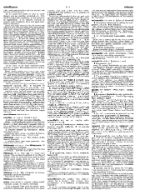
page_listing.tpl
page_subListingDetails.tpl
sub_listingDetails_style1.tpl
sub_listingDetails.title.tpl
miser wretched
miser is a Latin Adjective that primarily means wretched.
Definitions for miser
Wheelock's Latin
Adjective
- 1
wretched, miserable, unfortunate
English derivatives:
misery Miserere commiserate
Oxford Latin Dictionary
Adjective
- 1
(of a person) That is to be pitied, poor, wretched, unfortunate.
- 2
(of events, circumstances, etc.) Attended by misery, grievous, distressing, etc.
- 3
(in spec. use): a Wretched in health, sick, suffering (said esp. of the part affected); (also applied to those sick in heart).
- 4
(as a term of contempt) Pitiful, mean, wretched, contemptible.
Sentences with miser
Latin to English
Ille miser fugitūrus cōnsilium trium amīcōrum petēbat.Compare That wretched man on the point of fleeing kept seeking the advice of his three friends.
Maxima mala passus, homō miser mortuus est.Compare Having endured the greatest evils, the poor man died.
Miser timōre dēlīrat.Compare The wretched man is insane with fear.
O terra ille beatus, qui hic vir excipio: hic ingratus, si ejicio: miser, si amitto!Compare O happy that land which shall receive this man: ungrateful this land, if it shall banish him: wretched, if it shall lose him!
En miser homo! Si dolor summus malum sum, dico aliter non possum.Compare Lo a wretched man! If pain is the greatest evil, he cannot be called otherwise.
O miser et infelix dies! o falsus spes! o volucer fortuna! o caecus cupiditas! quam cito ille omnis praetereo!Compare O wretched and unhappy day! O false hope! O fleeting fortune! O blind ambition! how quickly have all those things passed away!
Acerbus et miser sum, qui fateor ego fortuna noster cogo.Compare It is a bitter and sad thing, which our fortune compels us to confess.
Quid vos hic miser ac tenuis sector praeda, qui licet iam sum fortunatus?Compare Why do you pursue this wretched and slender prey, you in whose power it now is to be most fortunate?
Data sources
Notes
- Definitions
- Frederick M. Wheelock, Wheelock's Latin, 6th ed., rev. Richard A. LaFleur (New York, NY: HarperCollins Publishers, 2005): 100.
- P. G. W. Glare, Oxford Latin Dictionary, Vols. 1-8 (Oxford: Clarendon Press, 1982): 1117.
- Word frequencies
- Christopher Francese, "Latin Core Vocabulary," Dickinson College Commentaries, last modified 2014, http://dcc.dickinson.edu.
- Paul B. Diederich, The Frequency of Latin Words and Their Endings, PhD diss., (Columbia University, 1939).
- Louis Delatte, Suzanne Govaerts, Joseph Denooz, and Etienne Evrard, Dictionnaire fréquentiel et index inverse de la langue latine [Frequency Dictionary and Inverse Index of the Latin Language] (Liège, Belgium: Laboratoire d'analyse statistique des langues anciennes de l'Université de Liège [L.A.S.L.A.], 1981): 120.
Bibliography
Allen, Joseph H. Allen and Greenough's New Latin Grammar for Schools and Colleges: Founded on Comparative Grammar. Edited by James B. Greenough, George L. Kittredge, Albert A. Howard, and Benjamin L. D'Ooge. Boston, MA: Ginn & Company, 1903.
Crystal, David. A Dictionary of Linguistics and Phonetics. 6th ed. Oxford, UK: Blackwell Publishing, 2008.
Delatte, Louis, Suzanne Govaerts, Joseph Denooz, and Etienne Evrard. Dictionnaire fréquentiel et index inverse de la langue latine [Frequency Dictionary and Inverse Index of the Latin Language]. Liège, Belgium: Laboratoire d'analyse statistique des langues anciennes de l'Université de Liège (L.A.S.L.A.), 1981.
Diederich, Paul B. The Frequency of Latin Words and Their Endings. PhD diss., Columbia University, 1939.
Francese, Christopher. "Latin Core Vocabulary." Dickinson College Commentaries. Last modified 2014. http://dcc.dickinson.edu/latin-vocabulary-list.
Gildersleeve, Basil L., and Gonzales Lodge. Gildersleeve's Latin Grammar: Third Edition, Revised, and Enlarged. 3rd ed. London, England: Macmillan and Co., 1903.
Glare, Peter G.W. Oxford Latin Dictionary. Vols. 1-8. Oxford, England: Clarendon Press, 1982.
Krüger, Bernd. "Latin Conjugation Tables." Cactus2000. Accessed May 5, 2023. https://latin.cactus2000.de/index.en.php.
Pierson, Nick. "Sound of Text." Accessed October 26, 2019. https://soundoftext.com.
Wheelock, Frederick M. Wheelock's Latin. 6th ed. Revised by Richard A. LaFleur. New York, NY: HarperCollins Publishers, 2005.
Wiktionary Contributors. "Victionarium." Wikimedia Foundation, Inc. Updated March 18, 2019. https://la.wiktionary.org/wiki/Victionarium:Pagina_prima.
Citation
Chicago (17th ed.)
Allo Contributors. "miser, misera, miserum (adj.) - Latin Word Definition." Allo Latin Dictionary. Last modified . Accessed February 20, 2026. http://ancientlanguages.org/latin/dictionary/miser-misera-miserum.
Entry created on . Last updated on .







